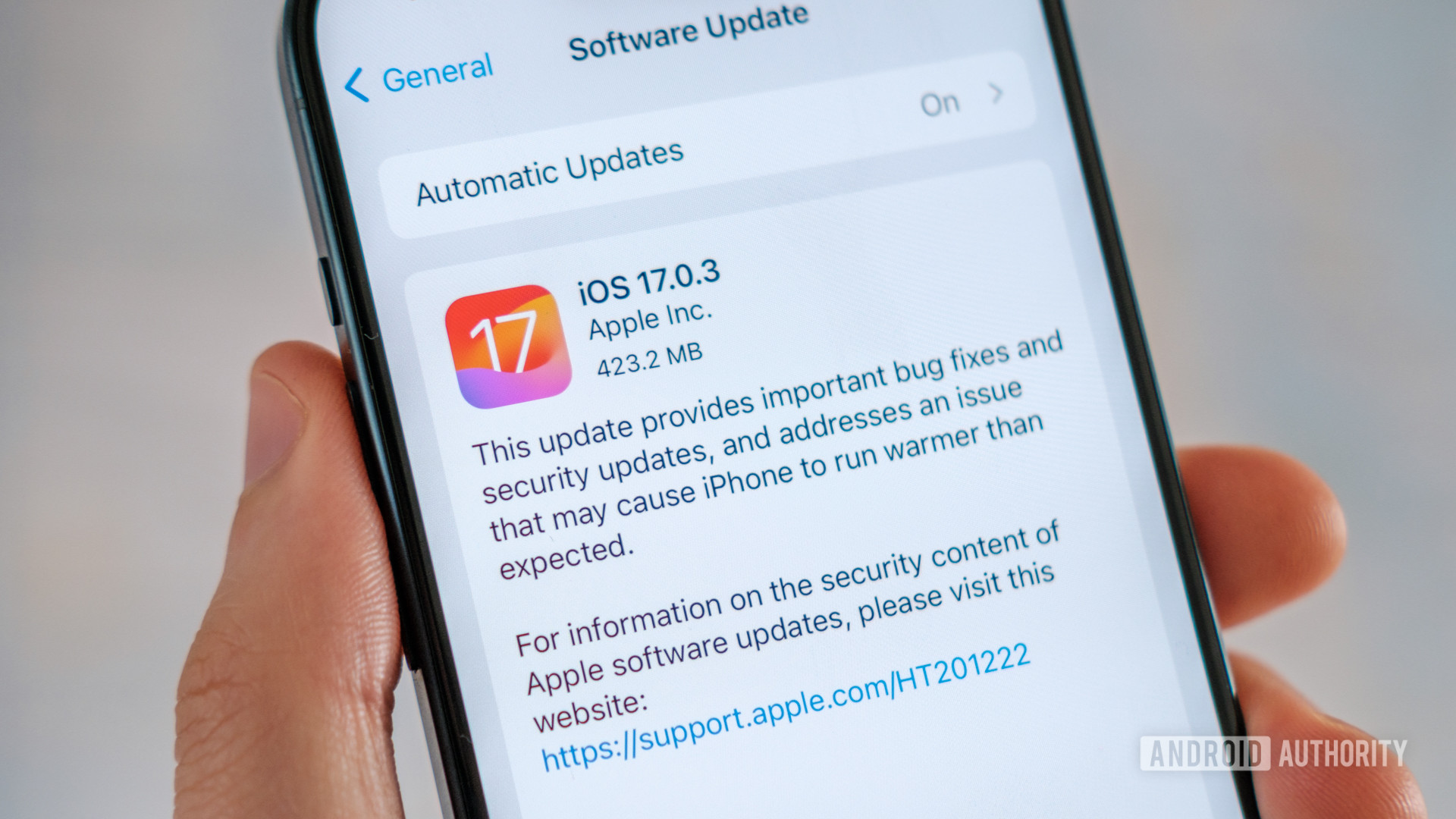
Robert Triggs / Android Authority
TL;DR
- Apple’s initial rollout of AI features in iOS 18 will reportedly function entirely on-device, keeping user data local.
- This on-device approach emphasizes privacy but may limit access to the more sophisticated AI features, which often require cloud support.
- Apple could potentially address this with third-party cloud-based AI features.
As Google and Samsung increasingly integrate AI capabilities into their flagship smartphones, Apple is poised to follow suit with the release of iOS 18. According to Bloomberg’s Mark Gurman, the initial rollout of Apple’s AI capabilities will function entirely on the user’s device, eliminating the need for cloud-based processing.
“As the world awaits Apple’s big AI unveiling on June 10, it looks like the initial wave of features will work entirely on-device. That means there’s no cloud processing component to the company’s large language model, the software that powers the new capabilities,” Gurman explained.
Apple’s decision to focus on local processing for AI features has both benefits and potential limitations. On the one hand, users can expect quicker responses and enhanced privacy as their data remains on their devices. However, this approach may also restrict access to the powerful cloud-based resources that are often necessary for advanced AI capabilities.
For context, Samsung’s Galaxy AI also includes offline capabilities such as Interpreter and typing suggestions. Google, too, has developed the Gemini Nano AI model intended for on-device execution.
However, even the most advanced smartphone hardware struggles to run cutting-edge large language models (LLMs) like ChatGPT without additional cloud support. Consequently, some of Samsung’s and Google’s most sophisticated AI features still require the power of cloud servers.
Gurman proposes that Apple could address this by incorporating cloud-based features, potentially powered by Google Gemini or a similar provider. Samsung’s Galaxy AI also offers a choice between cloud-based and on-device models for certain features. While the latter may provide lower-quality results or limited functionality, it offers a privacy-focused alternative.
Apple’s focus on on-device AI processing strongly suggests the company will leverage this approach to strengthen its reputation for stringent user privacy protection.
iOS 18 promises a suite of generative AI enhancements across Apple’s ecosystem of apps. Rumors point to improvements in Spotlight search, Siri’s ability to tackle complex questions, and powerful image editing tools in the native Photos app.
Apple will unveil iOS 18 and its AI capabilities at its Worldwide Developers Conference (WWDC), which will run from June 10 through June 14.








